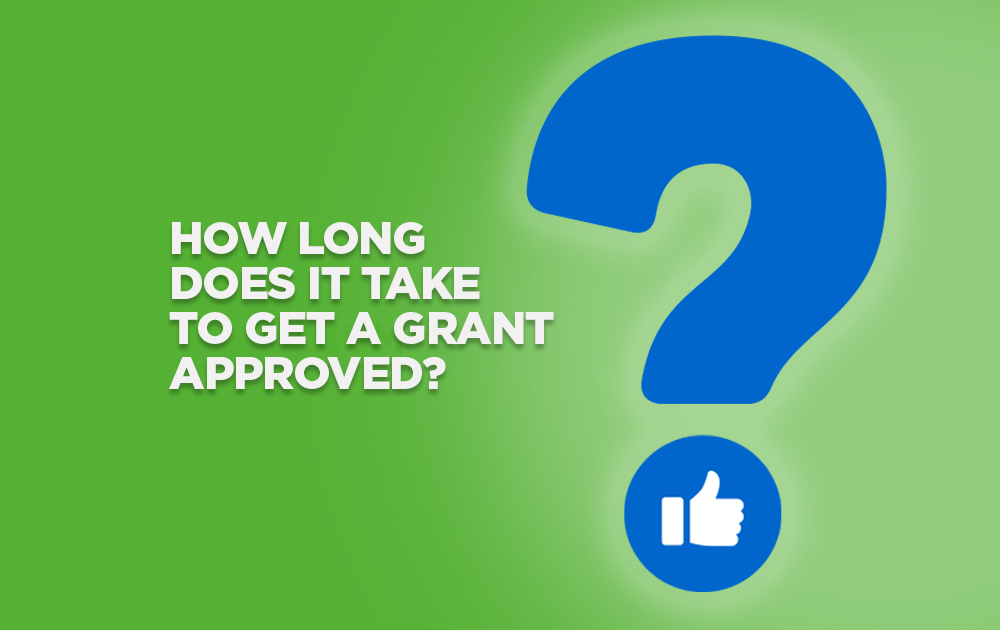The SASSA SRD R350 grant is a temporary Social Relief of Distress financial support program introduced by the South African government in May 2020 to assist vulnerable citizens during the COVID-19 pandemic. This vital monetary assistance is administered by SASSA, the South African Social Security Agency, on behalf of the Department of Social Development.
The R350 grant provides monthly cash payments to unemployed South Africans struggling financially due to the economic impacts of COVID-19. This article will explore the R350 grant in detail – from eligibility criteria and application process to payment dates and utilization requirements. Understanding the administration and objectives of the SASSA SRD R350 grant enables eligible citizens to access this emergency financial relief during these challenging times.
Understanding the Legal Basis for the Grant
The R350 grant forms part of the government’s legislative response to the national state of disaster declared under the Disaster Management Act of 2002. This Act enables the government to implement temporary disaster relief programs and amendments to existing legislation through its mandate.
The R350 grant gets authorized through Social Assistance Act regulations which allow SASSA to administer special discretionary grants during declared national disasters. The grant serves as a short-term increase to the existing Social Relief of Distress mechanism that provides food parcels and vouchers rather than cash payments.
The Policy Framework for the grant rests upon the provisions within the Social Assistance Act of 2004 which governs South Africa’s social security system. The Social Assistance Act sets out criteria for eligibility, application processes, benefit amounts, and recipients’ rights and responsibilities.
Amendments to the Social Assistance Act and its regulations enabled the creation of the R350 as part of a series of emergency COVID-19 directives issued by the Minister of Social Development. These legal adjustments allowed for temporary financial relief aligned with Disaster Management directives.
Hierarchy of Laws Governing the SASSA R350 Grant

- The Constitution of South Africa: Outlines citizens’ rights to food, water, social security and assistance.
- Disaster Management Act: Enables declared disaster relief schemes.
- Social Assistance Act: Sets framework for all social grants and relief programs.
- SRD Grant Regulations: Outlines administration of the special R350 grant.
- Ministerial Directives: Allows adjustments to programs based on need.
Importance of the R350 Grant for Low-Income Citizens
This income support grant helps mitigate the socioeconomic effects of COVID-19 by providing vital monetary relief for low-income individuals and families. It aims to ensure citizens’ fundamental rights during an economic crisis.
- Alleviates poverty’s impacts on unemployment
- Provides income for essential needs such as food, housing, utilities
- Enables financial stability and cash flow for recipients
- Stimulates spending in local economies by low-income households
- Upholds human dignity by easing deprivation during disasters
As part of the Social Assistance framework, the grant upholds Constitutional rights, even temporarily for those not normally qualifying for regular social grants.
Criteria for Eligibility and Qualification
The R350 grant targets unemployed individuals experiencing financial distress due to the pandemic’s effects. The following criteria determine an applicant’s eligibility:
- Age 18 to 60 years
- Unemployed without income
- Not receiving other social grants
- South African citizen, permanent resident, or refugee
- Does not reside in a state institution
- No taxable income
- Not receiving NSFAS educational assistance
- Pass a means test
These criteria align with Constitutional principles of providing poverty relief to the most vulnerable. Eligibility aims to identify those most critically in need of assistance.
Application Process for the SASSA SRD R350 Grant
Eligible applicants can apply through the following SASSA channels:
Online
- Complete the application form on the SASSA SRD online portal
- Capture ID number, personal details, banking details
- Submit the required supporting documents
Mobile App
- Download the SASSA SRD App and complete the application
- Upload documents such as ID, bank statement
- Provide proof of income status
- Submit the completed app form
Designated Sites
- Visit designated SRD application sites
- Submit printed form with documents
- Capture fingerprints for verification
Call Centre
- Contact the SASSA call centre on 0800 601 011
- Provide details telephonically
- Submit supporting docs to the nearest office
Once submitted, applicants await assessment outcomes and can check their status online using their ID number.
Biometric Identity Verification
As part of anti-fraud measures, applicants’ identities get confirmed biometrically using fingerprints, facial recognition, voice recognition, and other measures. These verifications comply with the Identification Act of 1997 and ensure social assistance only reaches entitled recipients.
Rights and Recourse in the Application Process
The Social Assistance Act entitles citizens to apply for social relief and receive prompt assessments. If applications get rejected or delayed, applicants can:
- Appeal the decision through the SASSA appeals process
- Request reasons for the rejection in writing
- Reapply with additional information
- Seek recourse through a Social Development office
- Consult legal advice from public interest law centers
Applicants have the right to a transparent, lawful application process. SASSA must provide reasonable justification for any rejected or delayed applications.
Payment Administration and Schedule
Once approved, recipients receive their R350 grant payment each month on set dates. SASSA staggers payment dates based on the last three digits of recipients’ ID numbers. This efficiently manages high payment volumes.
Payment Date Schedule Per ID Numbers:
- 1st to 4th of the month: ID numbers ending 00-20
- 5th to 8th: ID numbers ending 21-40
- 9th to 12th: ID numbers ending 41-60
- 13th to 17th: ID numbers ending 61-80
- 18th to 20th: ID numbers ending 81-99
Recipients can opt for a set date and notify SASSA accordingly. Funds get deposited directly into recipients’ nominated South African bank accounts. Recipients should allow 3-5 days for funds to reflect and plan accordingly.
Oversight and Compliance Mechanisms
Multiple agencies and oversight measures ensure the SASSA R350 program upholds compliance, anti-corruption and efficient administration per legislative requirements. These include:
- SASSA Grant Compliance monitoring
- Department of Social Development inspection
- South African Human Rights Commission
- Public Protector investigations
- Auditor General program audits
- Parliamentary Portfolio Committee on Social Development
Citizens can report any suspected violations or abuse to SASSA hotlines or Public Protector anonymously. The government takes any non-compliance very seriously to uphold Constitutional rights.
Renewing the SRD R350 Grant
The Disaster Management Act initially authorized the grant for a period of 6 months, after which extensions get granted based on continued economic need.
In October 2020, January 2021, July 2021, and January 2022, the Department of Social Development gave directives to extend the grant in 3 to 5-month increments. These directives aligned with National State of Disaster extensions and economic impact outlooks.
The grant currently extends to March 2023, but the government continues assessing the possibility of renewal as pandemic impacts persist. The future of the grant depends on fiscal affordability and the progression of the pandemic and its economic effects.
SASSA will communicate directly with current recipients regarding any grant extensions or terminations. Recipients must continue meeting the eligibility criteria to qualify for further extensions.
Communication and Status Checks
SASSA uses multiple channels to communicate with SRD R350 recipients and applicants regarding payment statuses, outcomes, and updates:
- Status check via SASSA SRD online portal
- Status update messages to registered cellphone
- Letters posted to home address
- Email updates to registered email address
- Visit the nearest SASSA regional office
Recipients should provide and maintain valid contact details with SASSA for prompt communication. Conducting regular status checks is also advised, especially if payment delays are experienced.
Queries and Changes to Recipient Information
For any payment queries or recipient information changes, SASSA can be contacted via:
- SASSA call centre: 0800 60 10 11
- Email: GrantEnquiries@sassa.gov.za
- Visit or call the nearest SASSA office
- Log query via SASSA SRD portal
Prompt communication regarding changes to ID number, bank details, address, or income status will prevent payment issues. SASSA relies on accurate recipient information for smooth grant administration.
Reasons for Non-Payment or Payment Delays
If payments fail or get delayed, common reasons include:
- Incorrect bank details provided
- ID number mismatches
- Pending status check outcomes
- Switching bank accounts without notifying SASSA
- Temporary system errors
- Backlogs and congestion during peak periods
- Failure to collect Post Office payments
- Changes to recipient details not communicated
Recipients should contact SASSA with specific payment queries for troubleshooting assistance. Most issues can be resolved promptly by identifying the cause.
Utilizing the Grant Responsibly
Recipients are advised to utilize their SRD R350 funds solely for essential living costs as intended by the program’s objectives. These include:
- Food, grocery, and household items
- Utilities like water, electricity, and gas
- Transport costs
- Basic clothing
- Accommodation rentals
- Medication and healthcare
- Mobile data, airtime, and communication
- Schooling needs like stationery
The funds should not be used wastefully on non-essentials like alcohol, cigarettes, gambling or loan repayments. Recipients who default on these guidelines may face disciplinary action or grant suspension.
Expansion to Caregiver Grants
In its 2022 budget speech, the government announced plans to expand the SRD grant framework to include a Caregiver Grant of R350 per month. This aims to support caregivers not receiving other assistance.
The Caregiver grant seeks to uphold Constitutional rights for vulnerable groups, including children, the elderly, and the disabled. Providing poverty relief to caregivers enables better care outcomes for dependents.
Regulations for this grant are still underway, but the government envisions its administration under the existing SRD infrastructure. Qualifying caregivers will undergo a similar application process to access the monthly funds.
This expansion indicates the SRD program’s success in providing poverty alleviation during the pandemic. The caregiver grant signifies the government’s commitment to strengthening social protection through sustainable solutions.
In conclusion, South Africa’s SASSA SRD R350 grant remains a vital mechanism for upholding citizens’ fundamental rights during an unprecedented socioeconomic crisis. The legislative frameworks enable it to uphold Constitutional justice. Ongoing oversight and administration improvements can ensure the grant reaches all eligible citizens consistently and effectively. This temporary program expansion signifies the government’s drive towards more inclusive social protection.
